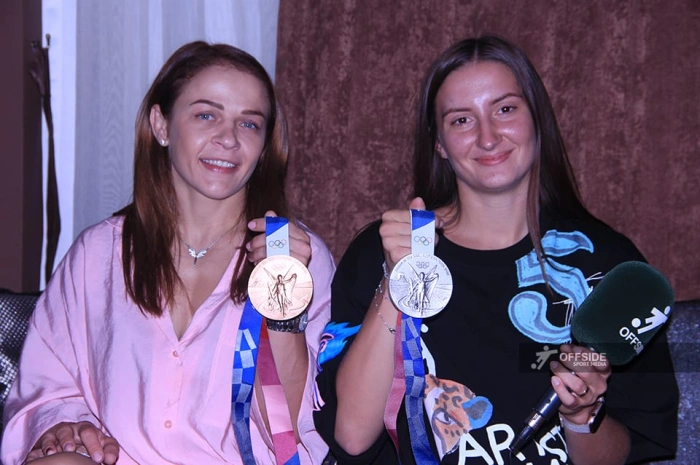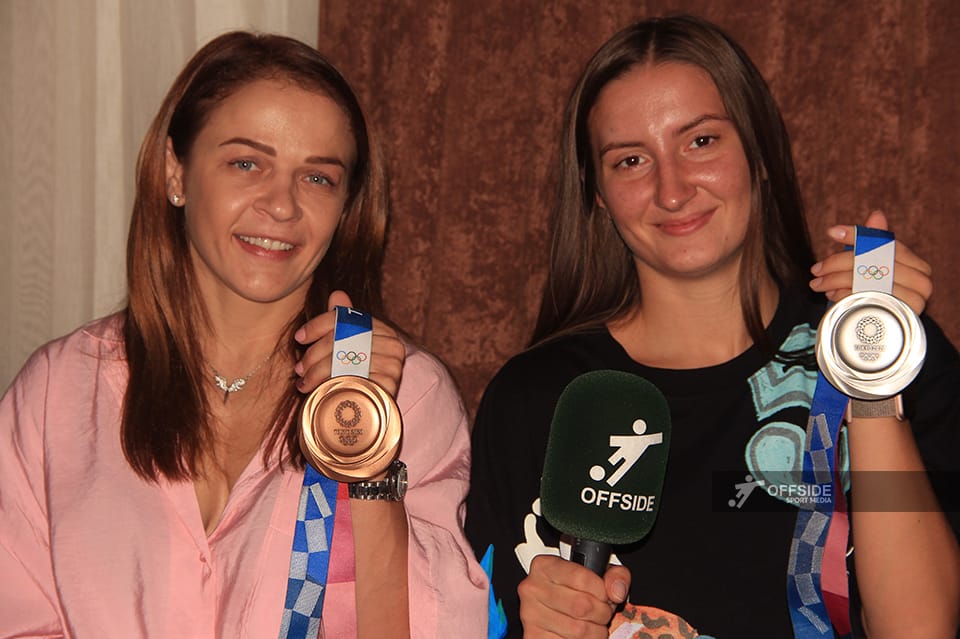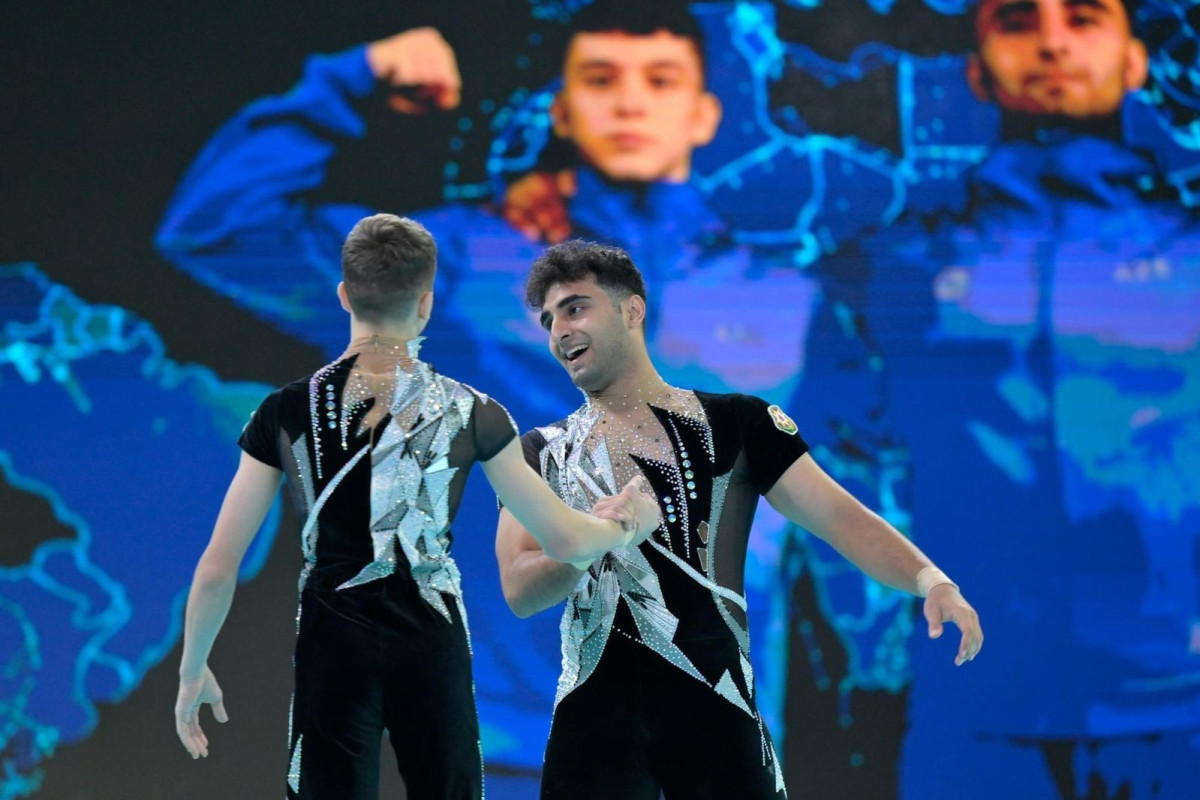- With the bronze medal won in Tokyo, you became a record holder at the Olympic Games in Azerbaijan. How does it feel?
- Of course, I was disappointed that I did not win a gold medal. But looking back, you see that there are 4 Olympic medals. You think about the suffering you went through until you came here, the way you went through, and then that feeling of frustration disappears. You understand that this does not mean participating in only 4 Olympics, but returning from all the Games you went to with a medal. Only 2 Japanese athletes have 4 Olympic medals in women's wrestling. In this sense, I think of going down in history, the example I set for young wrestlers. Of course, these are not only my medals, but also the medals of the people who support me and are with me. How many times our flag has been raised, how many times the anthem of our country has been sounded over the years ... All these factors are very important. I am proud to have won these medals and made our country happy.
- After Tokyo, many people are interested in the main question: will we be able to see you at your 5th Olympics?
- It is too early to think about it and decide. Very little time has passed since the last Olympics. I underwent severe psychological and physical training. The postponement of the games, the quarantine, the fact that everyone expected gold from me made me very emotional. Now I don't just want to be emotional. After a while I will think calmly. I can and do physically perform in Paris. But I need to rest for a while. Maybe it's time to finish my career and start coaching? I will consult with my relatives about this.
- Let's go back to the beginning of your career. You said in an interview: "It's good that I was found doping and I changed the Ukrainian national team to Azerbaijan." How do you remember these events 14 years later?
- At that time I was very young, even in shock. Because I did not know and did not understand where doping got into my body. Now I am more experienced and have a different approach to such problems. If something bad happens to you at some point in your life and it disappoints you, in the future it may make you happy. If something bad happens, then I need it and it will be good for me in the future. After doping was discovered in my body, I came to Azerbaijan and built a good sports career. In Ukraine, this could be a problem.

- For example, what kind of problem do you mean?
- They trusted other wrestlers, the selection was different. In Azerbaijan, I was allowed to train comfortably, to wrestle without any intrigue. There is a lot of competition in Ukraine, so someone didn't want me in the national team.
- Then you were given a chance to Olympic champion Irina Merleni, and only a year later, in 2008, you both won a bronze medal in Beijing and stood on the same podium. How did it feel to be on the same level with the athlete who forced you to leave Ukraine?
- I wanted more, I was waiting for a gold medal. But when I stood on the podium, I left the Ukrainian national team. There they told me: “Wait, we have Ira. We'll give you a chance when the time comes. "But they didn't give me a chance, they didn't even give me a chance to wrestle with him. When I won a bronze medal, justice was restored. I showed them that I deserved to be among the Olympic medalists.
- Are you still angry after 14 years?
- No, it's not. I can't hold a grudge. I was young and emotional then.
- Did they want to bring you back in Ukraine?
- No, I would never go. After so much good done for me, I would never leave Azerbaijan.
- In an interview in 2015, you said that you learned the first refrain of the Azerbaijani anthem. Were you able to learn our anthem later?
- Yes, I learned completely. But I know I'm wrong. This is not an ordinary song, but the National Anthem of the Republic of Azerbaijan. I decided not to read it, instead of hurting someone by saying the wrong thing. But when the anthem sounds, I sing in my heart.
- Closing, quarantine, uncertainty before the Olympics did not seem to hinder your optimal form. What is the secret?
- When the quarantine started, first of all, it was very difficult psychologically. It was questionable whether the games would be held. I have been wrestling professionally for many years. I start training 1 week after each race. Keeping fit physically helped me a lot in Tokyo. As you know, wrestling always requires sparring. It's good that I have children at home, I sometimes sparred with them (laughs).
- How does it feel to be the most famous female athlete in Azerbaijan? Doesn't this popularity bother you?
- I have never felt famous. I do not do my job for the sake of popularity. But I'm happy when someone in the city wants to take a picture. When I was a child, it was a great event to see a famous athlete and take pictures with him. I always remember this and I know how important it is for people. That's why I never refuse fans who come to me to take pictures or get autographs.
- You have been representing Azerbaijan for 14 years. You show that you are always with the people, not only on the carpet, but also on social networks, and you have won the sympathy of Azerbaijanis. Analyzing these 14 years, what would you say to the country, the fans, the people who work with you?
- I thank the people of Azerbaijan for accepting me. When I first came here, I was very scared. I saw the attitude towards legionnaires in Ukraine and already understood that I was a legionnaire. But seeing the people who supported me during the competitions made me happier than the medals I won. During the European Games, the support of the whole hall shouting "Maria Stadnik" gave me worlds. You know, when a girl is born in a family, you realize that later she will get married and move. I feel the same way. I was born in Ukraine, but I came to Azerbaijan as a bride. I no longer feel like a legionnaire here. Everyone knows that I am Azerbaijani.
We thank ICE Pub for its support in organizing the interview.






